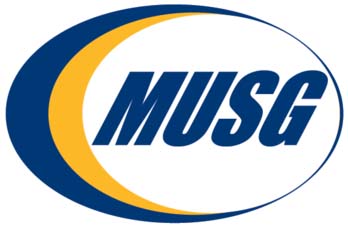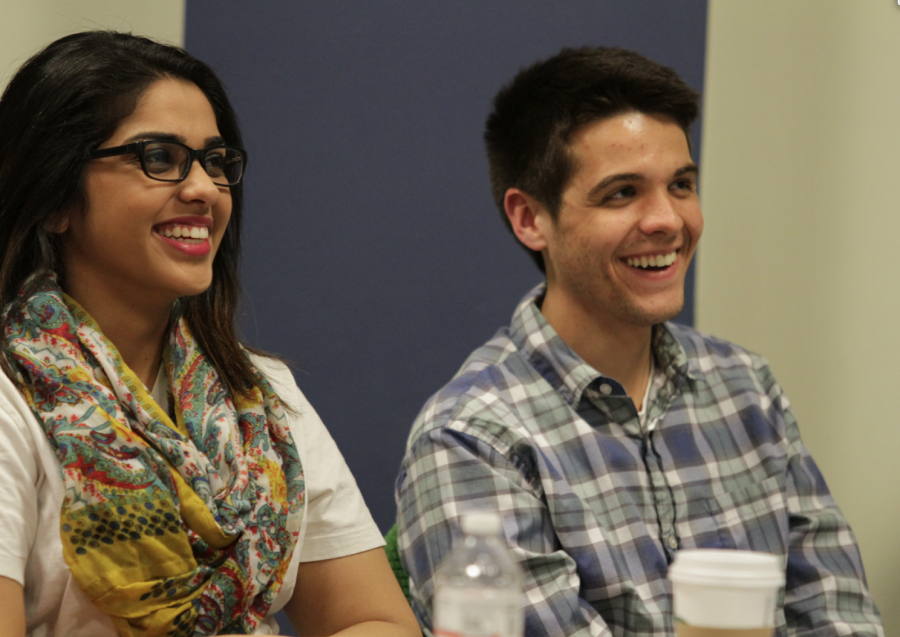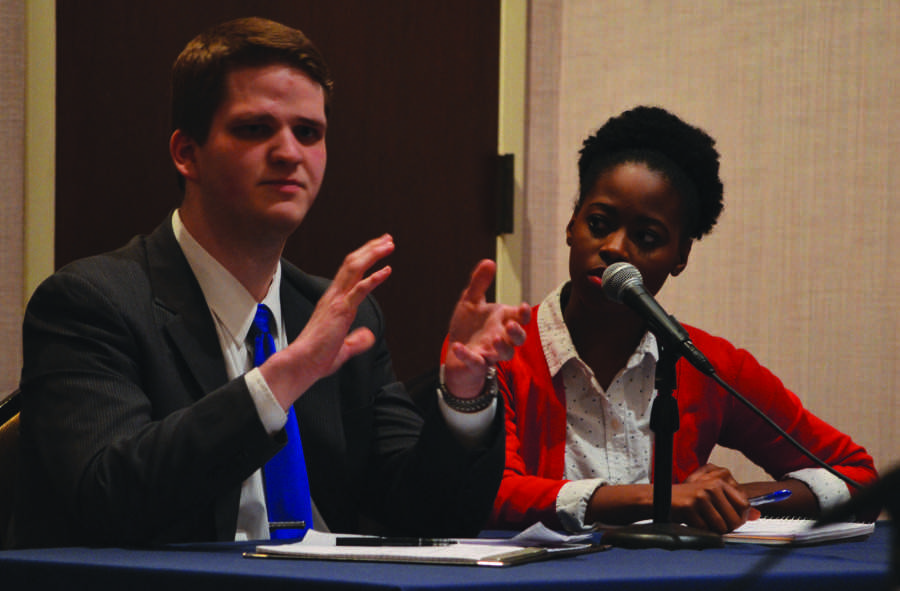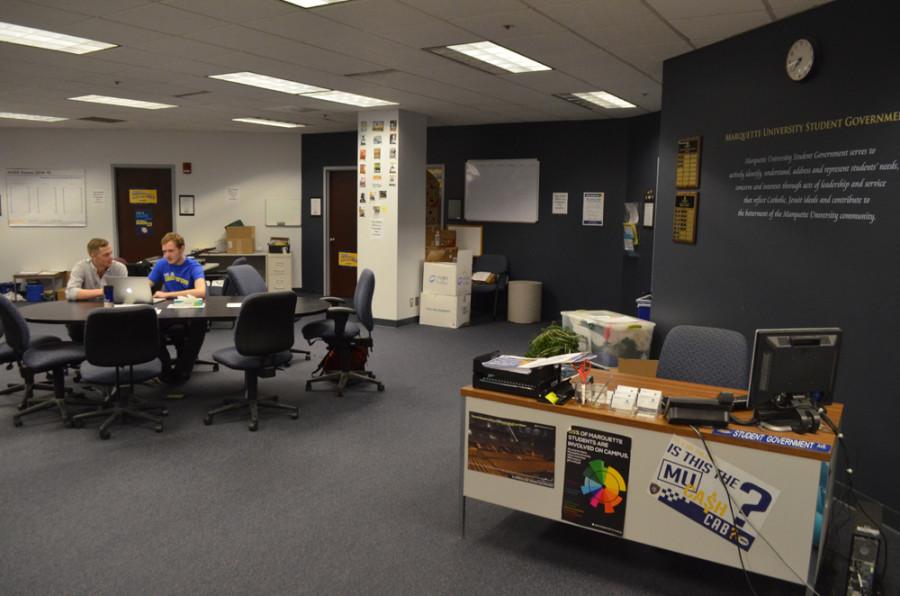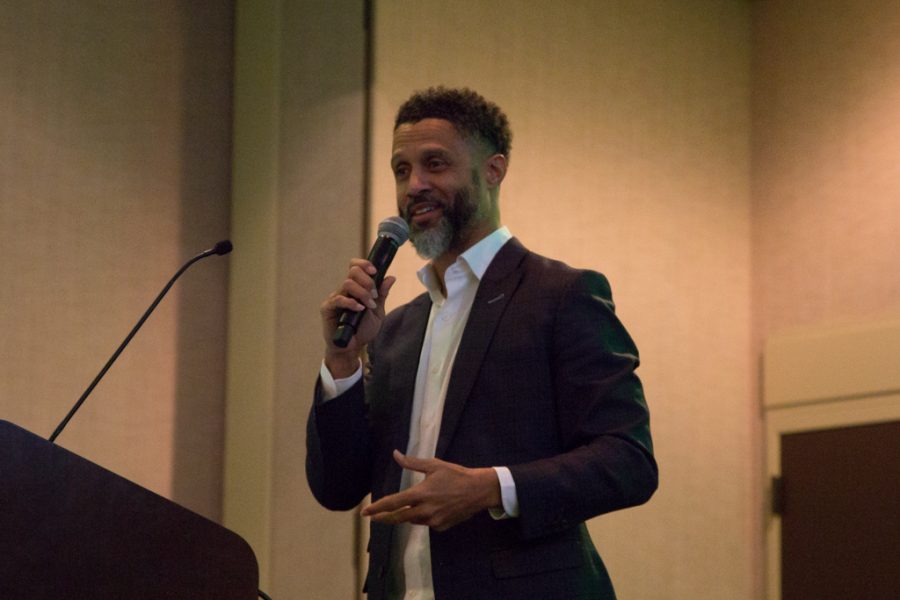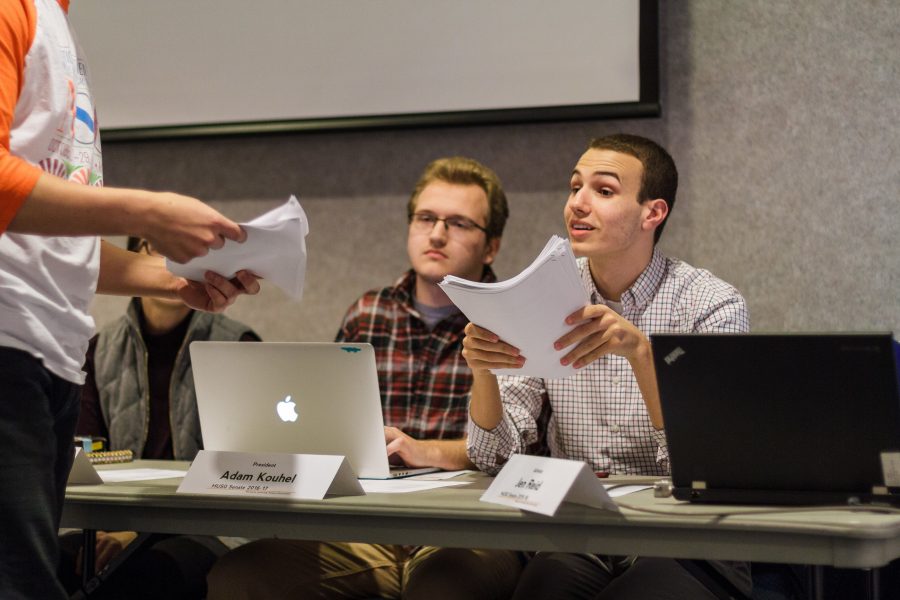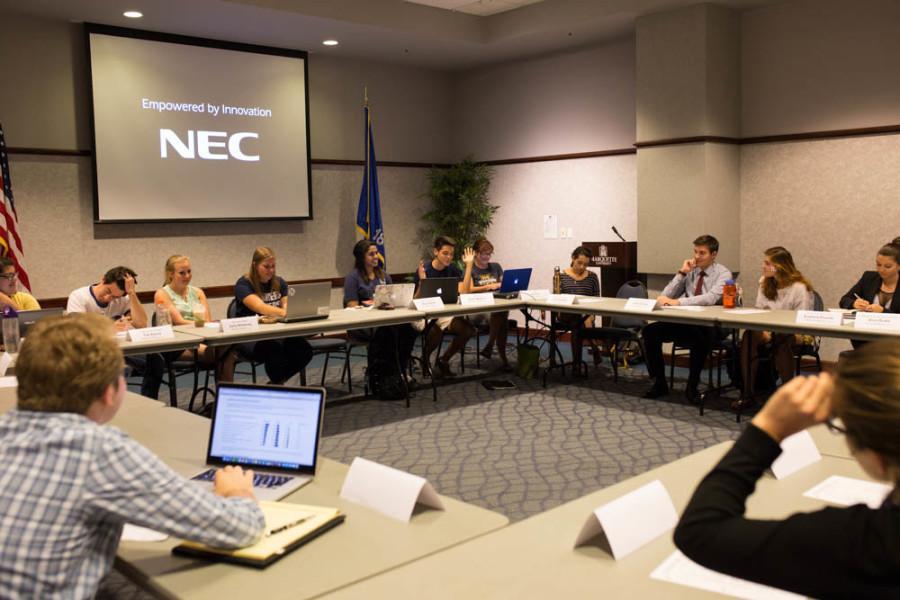Marquette Online Course Evaluation System (MOCES) results cannot be published until the university receives a higher participation rate and more accurate results, said Marquette Student Government President Kyle Whelton.
“The firm stance of the provost is that there are not enough responses at this point for it to be scientifically valid,” Whelton said. “The participation rates are very low. Some classes are rather high, but it is really scattered across the board.”
The biggest concerns, Whelton said, are that the only students who fill out evaluations are the outliers, providing skewed results.
“We don’t get a lot of the ones in between, we are getting data from the polar ends,” he said.
Whelton said Ratemyprofessor.com, a website that provides reviews of faculty, does not always provide the most realistic results, claiming that most people on the website have an agenda.
Meaghan Bau, a sophomore in the College of Business Administration, said she used Ratemyprofessor.com as a way to research potential professors.
“I use it every time, but I always take it with a grain of salt,” she said. “Most of the people on that site are extreme.”
Bau said she used the MOCES program for two of her classes, one because she enjoyed the professor and the other because she disliked the course.
Whelton said the reason students do not fill out the course evaluations is because it does not directly benefit them.
“The biggest complaint that we hear from students is that there is no incentive to fill it out, and that their comments have no impact.”
The MUSG academics board and the university are looking into ways to increase student turnout. Whelton explained that the university already provides small incentives such as drawings and prizes for those who fill out the evaluations.
Whelton said the MOCES data is not available to students or the public, but is reviewed by the professor who taught the class, the department chair, the dean’s office and the provost’s office.
Whelton and Hau both said course evaluations may not be fair to all professors or classes. Whelton explained that the content of the class could change a student’s perspective of the course and professor.
“There is never going to be a positive review from someone who takes organic chemistry,” Whelton said. “The course is hard and the workload is intensive.”
MUSG legislation was passed in 2010, Whelton said, to open up the course evaluation data to students, but it was denied by the university.

